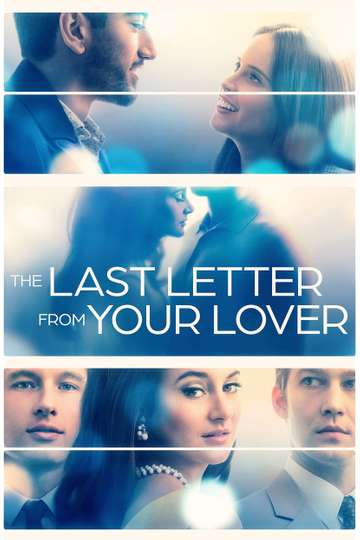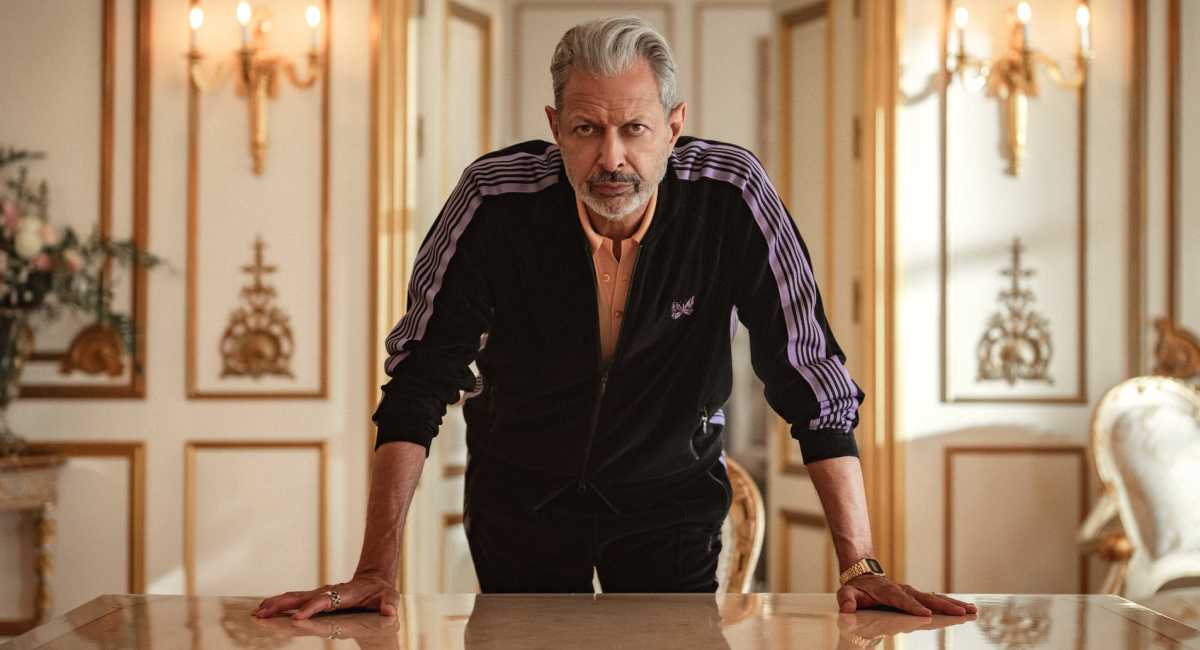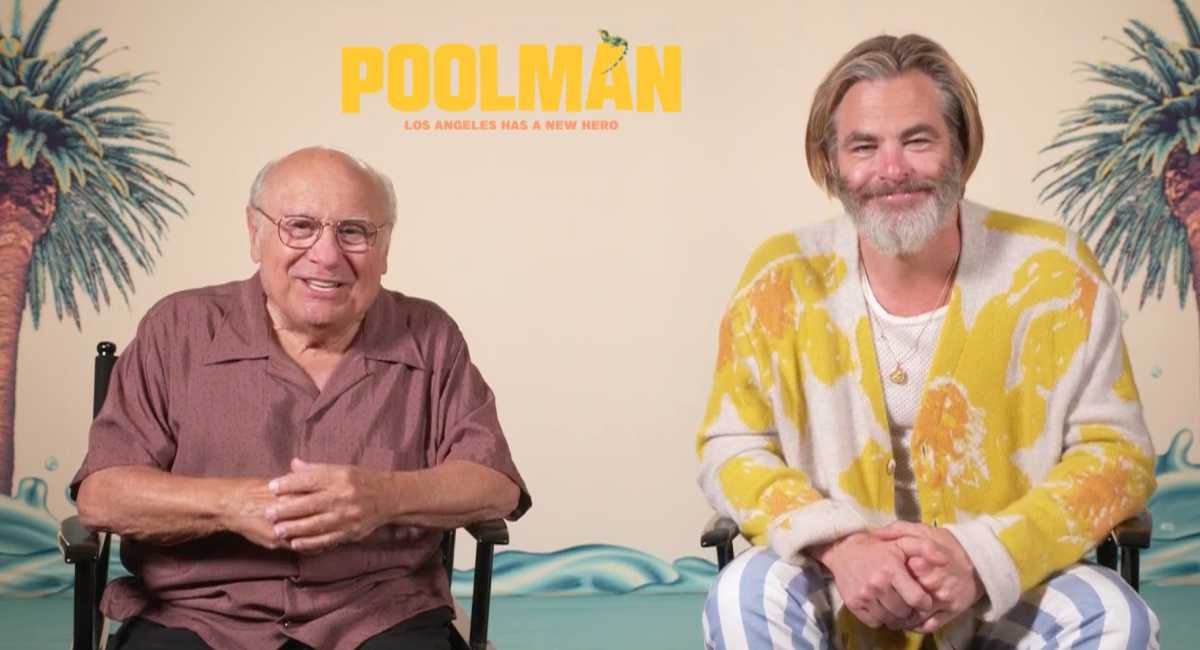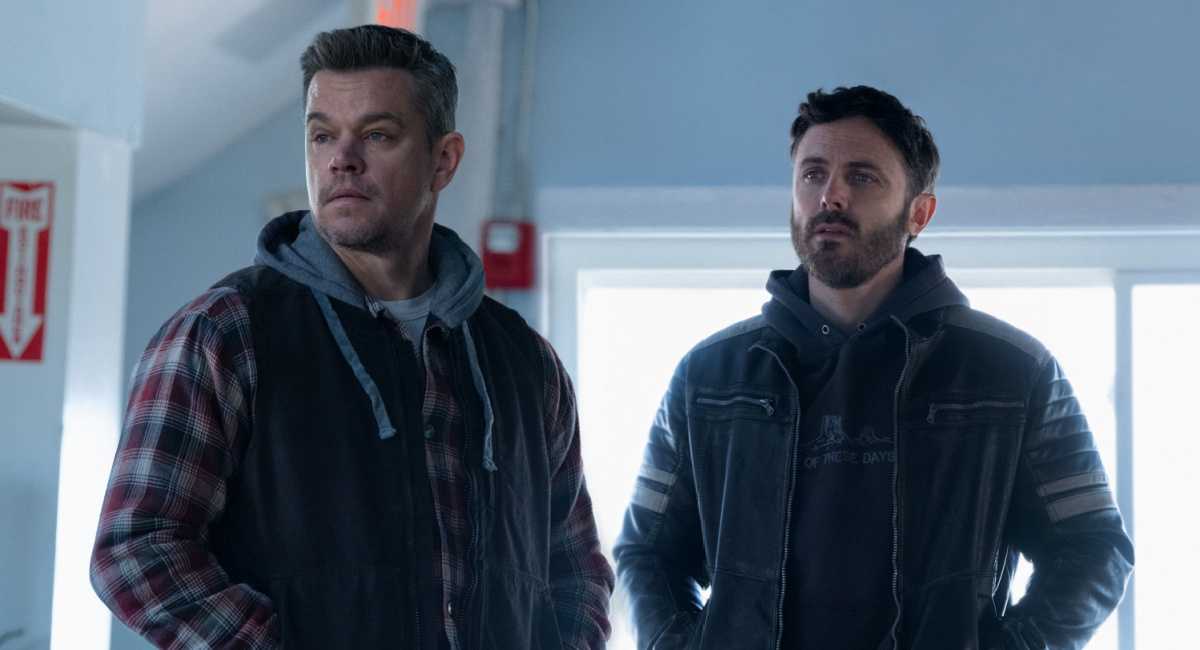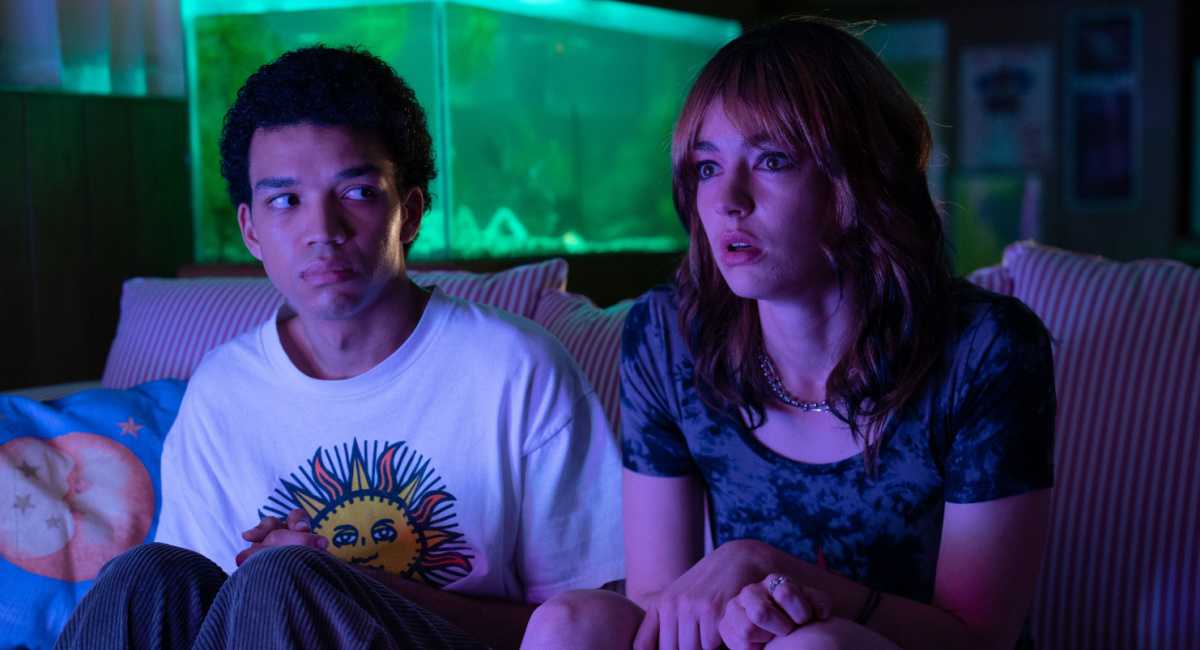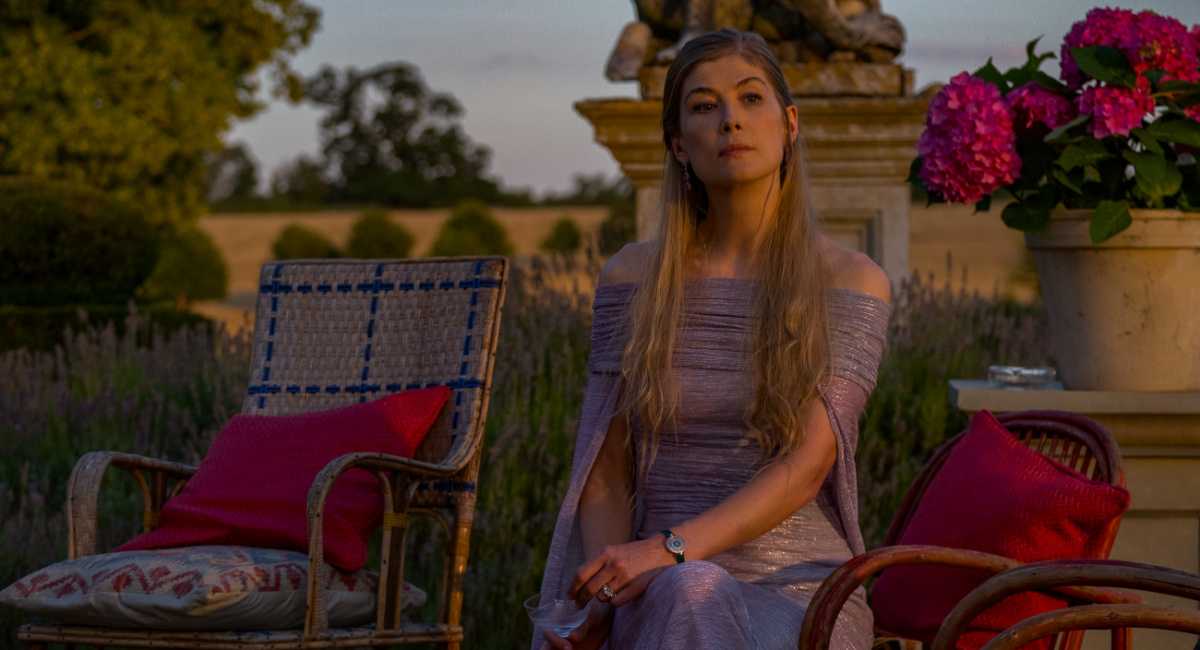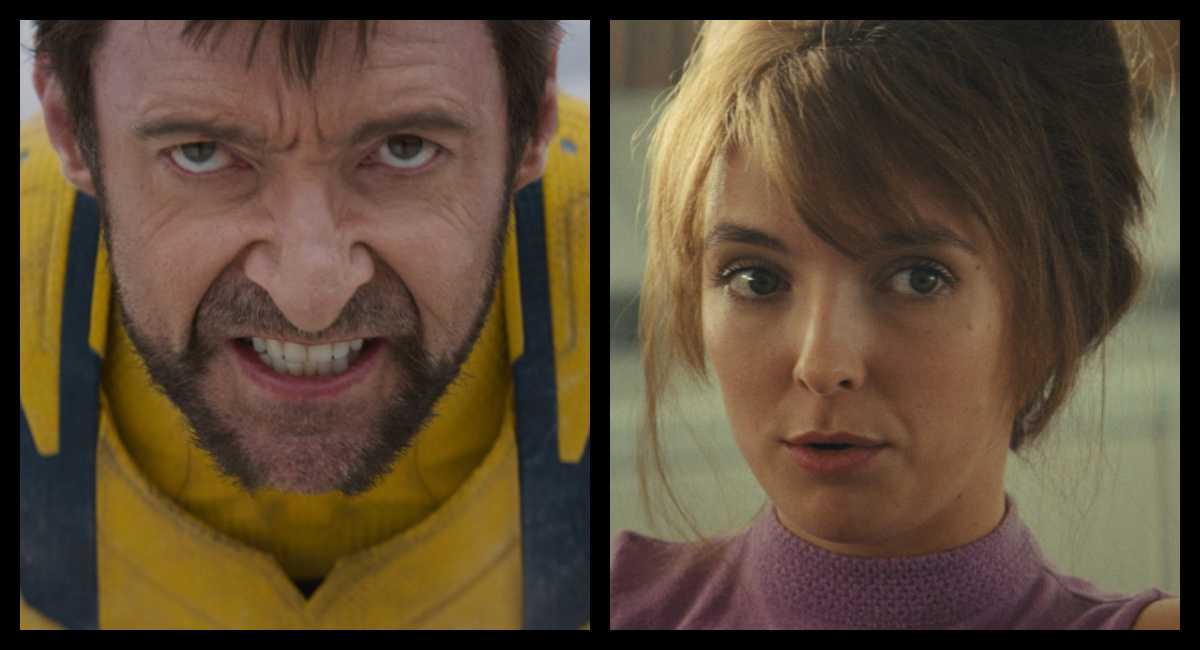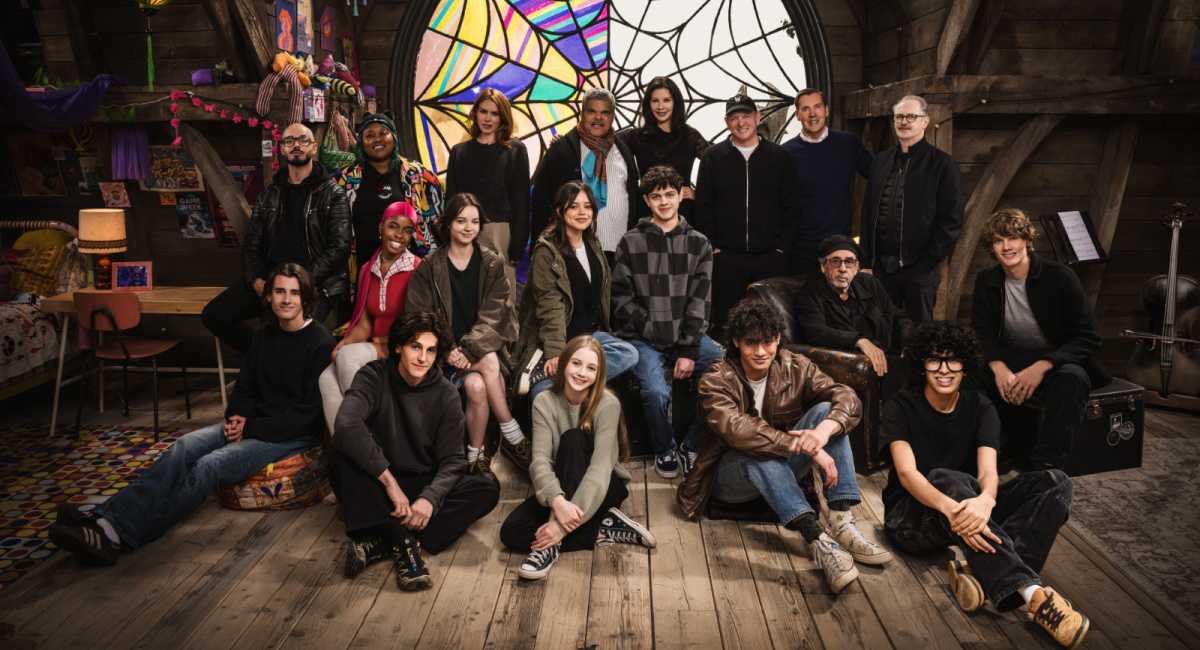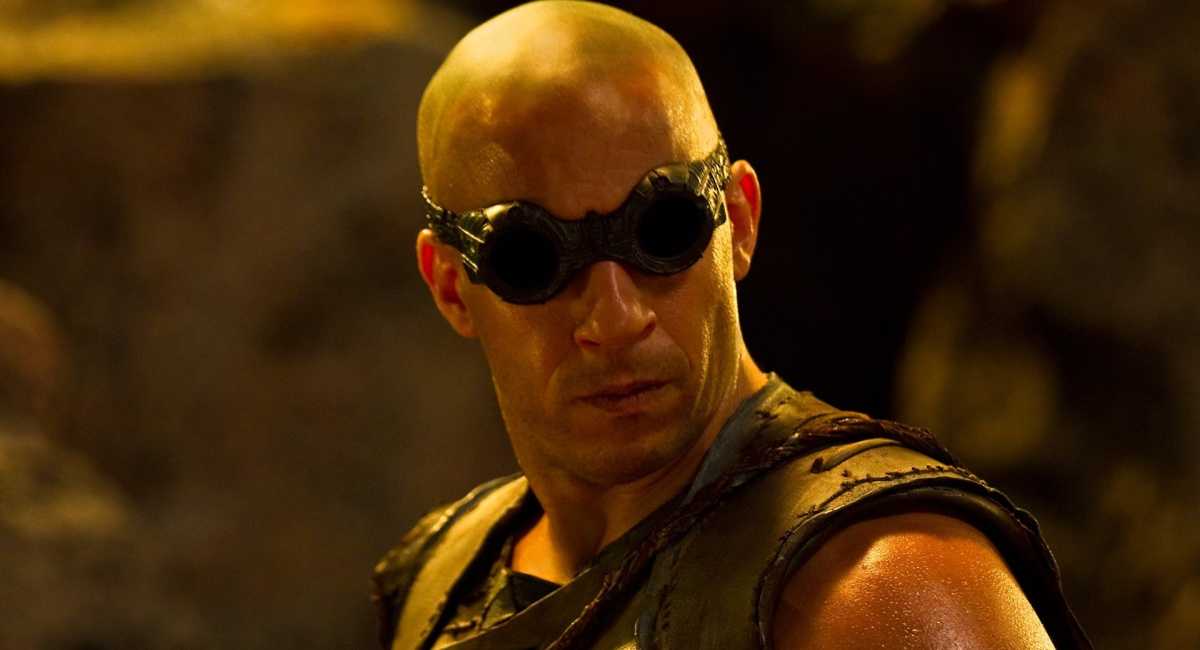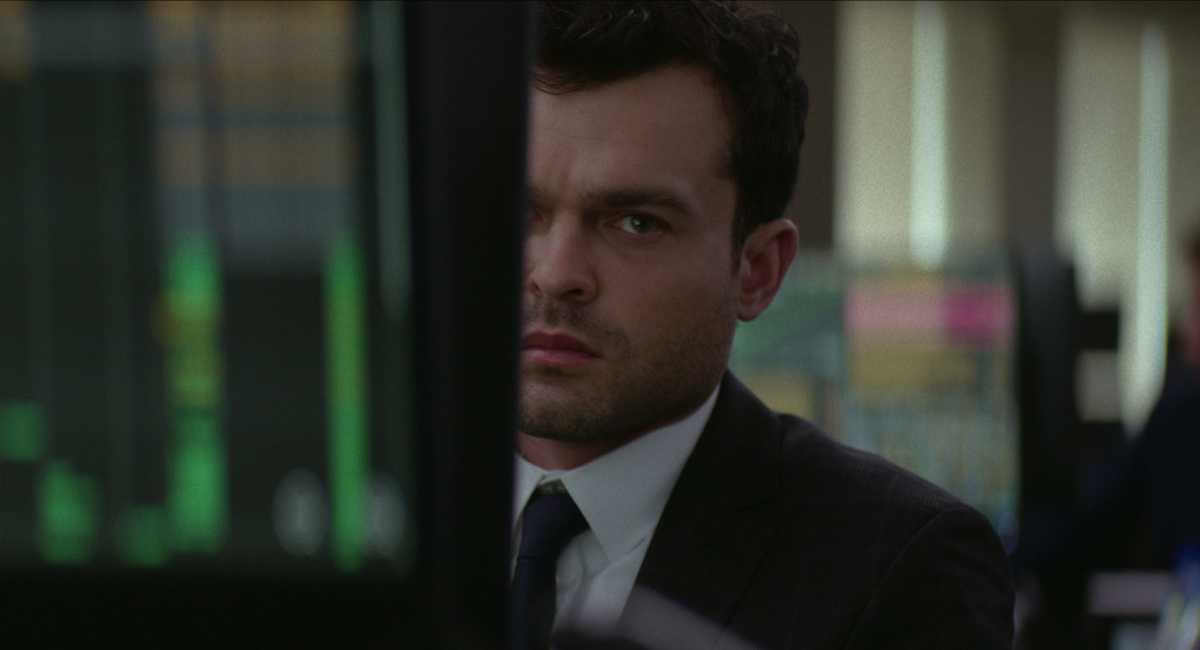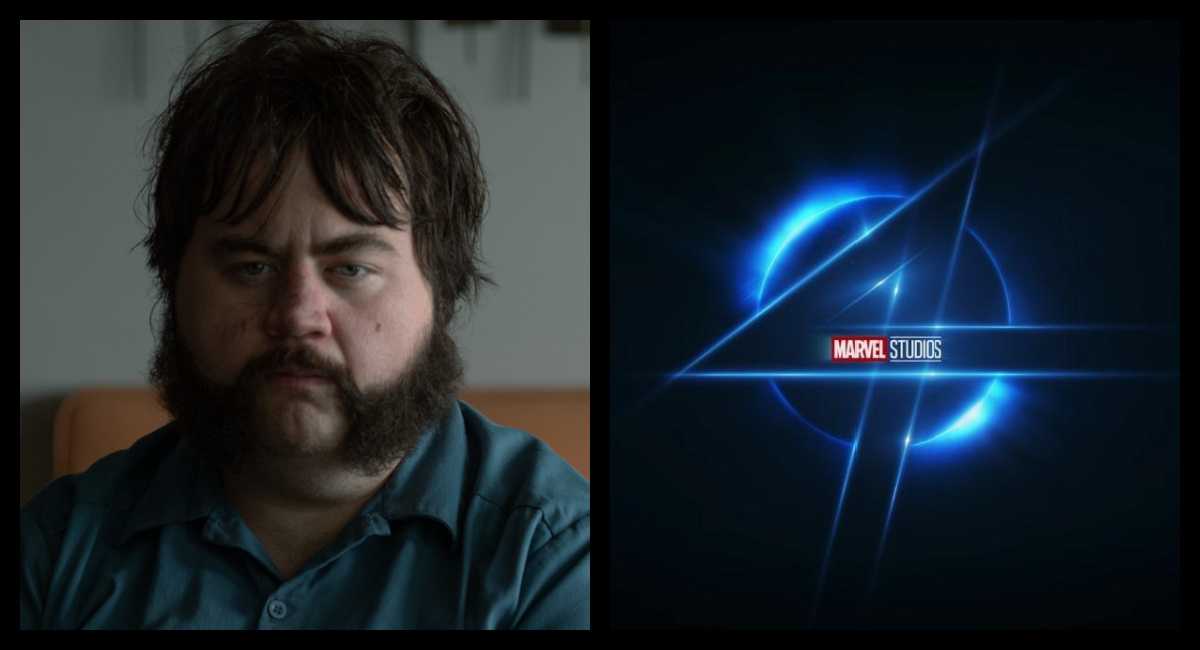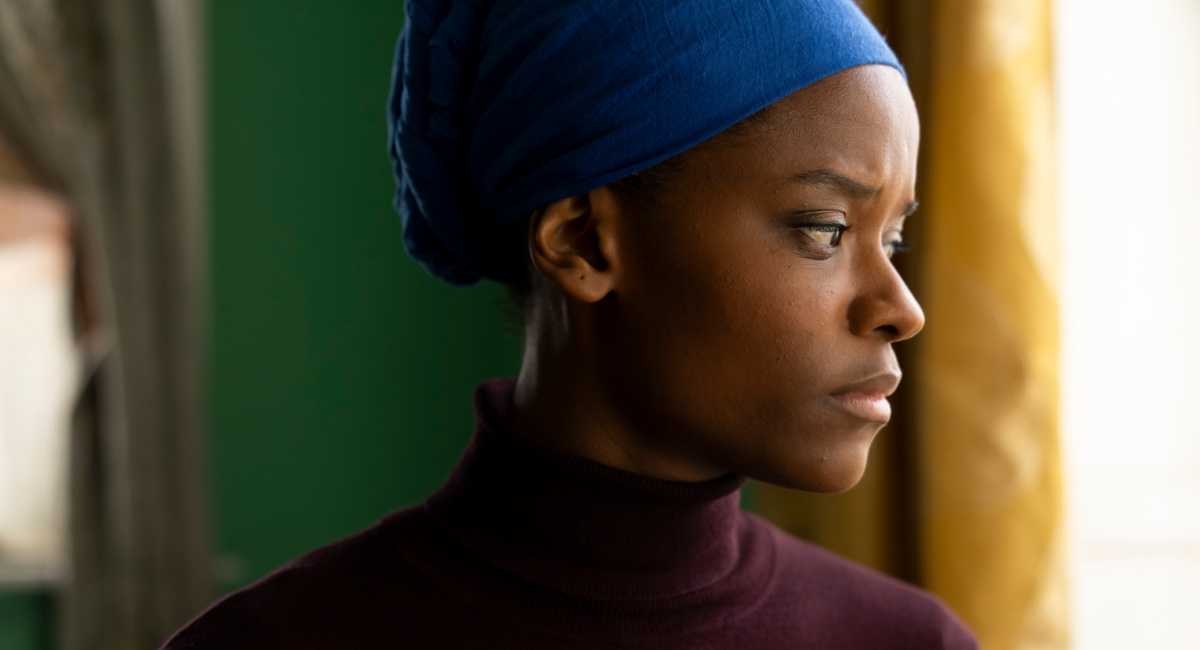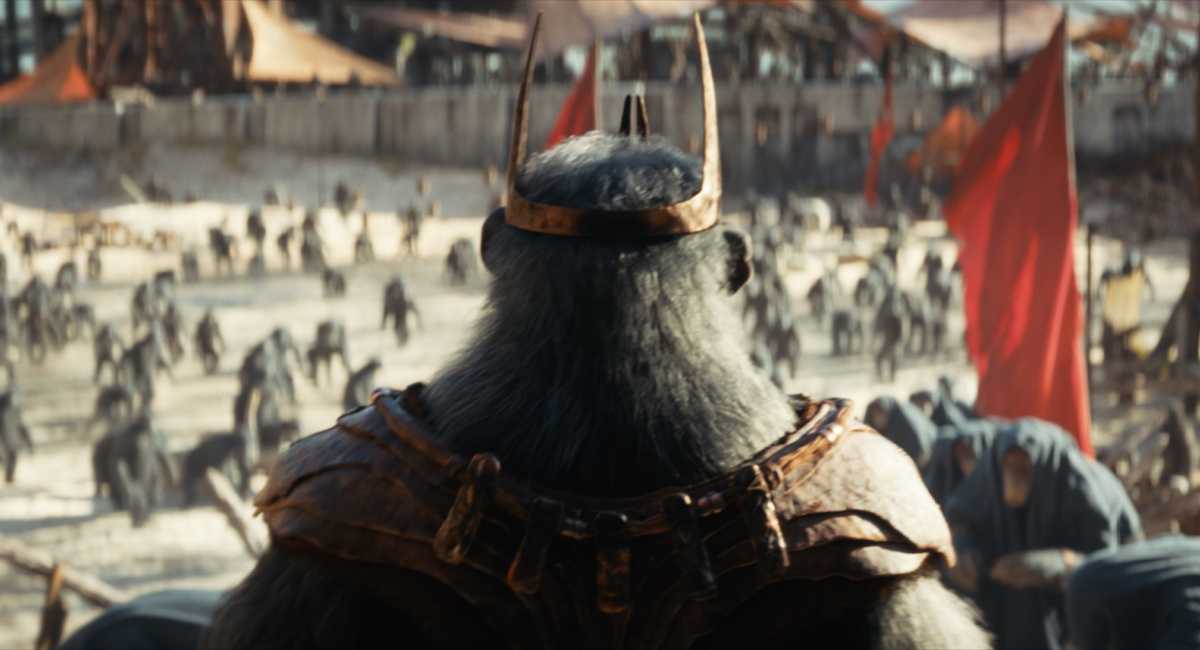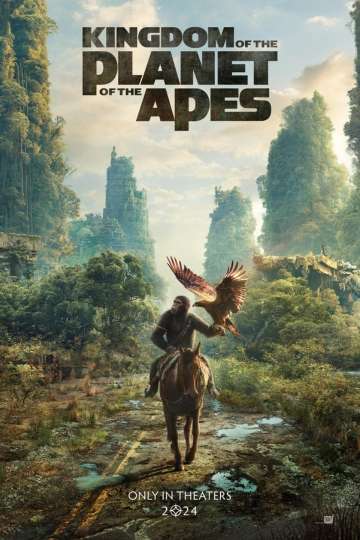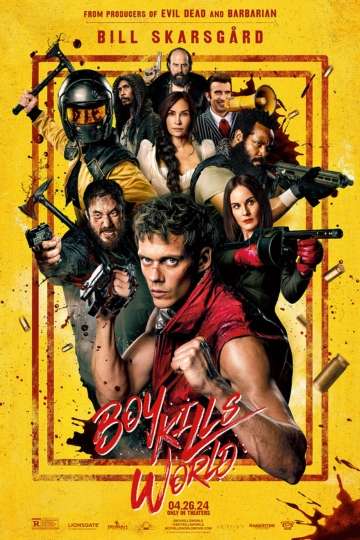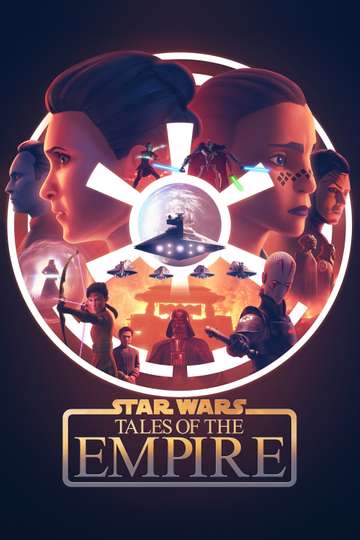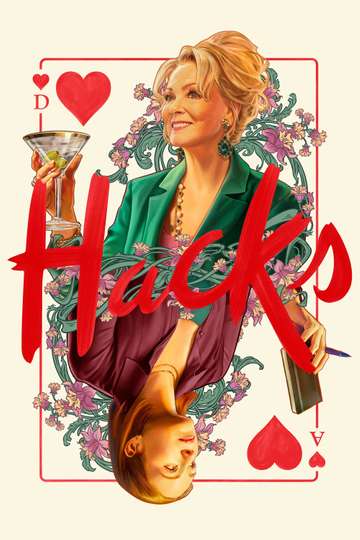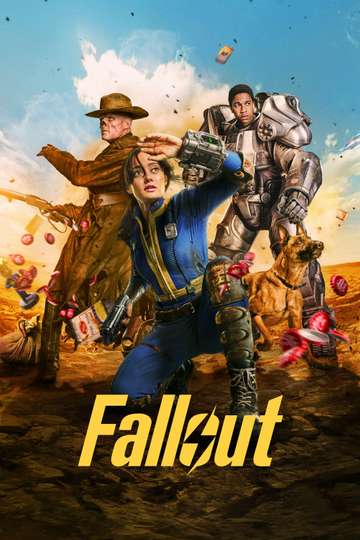Felicity Jones and Shailene Woodley talk about ‘The Last Letter from Your Lover’
Jones and Woodley join co-stars Nabhaan Rizwan and Callum Turner, director Augustine Frizzell and novelist Jojo Moyes to talk about the new movie.
Felicity Jones and Nabhaan Rizwan spoke to us about their new movie.
Moviefone: I loved seeing you, Felicity, in this role of a more modern-day woman, which I feel like I haven't seen a lot of. It was so unexpected. Can you tell me about playing Ellie?
Felicity Jones: Yeah, well, that's why I wanted to do it. I was really desperate to do a contemporary character. And I loved Ellie's spikiness and her wit. And it just felt like it was really fresh in the character. And as you say, I'd done quite a lot of period movies leading up to that. So it was really nice to just do something that was bang up to date. And it just appealed straight away. That was one of the big draws, was the character of Ellie.
MF: Did you feel that you related to her more or less than some of the other roles that you've played?
Jones: Yeah, I really related to her. I think I also liked her. I like characters where there's something a little bit extreme about them. And I think Ellie has that. I liked the way she wasn't too much of a people pleaser, as well. That's always fun to play. So, no, I really... And Nabhaan and I just had such fun doing it. They were such really nice scenes to play, really nicely written. We had such an easy, relaxed time of making it. So it was a wicked experience. I haven't used that word for ages.
Nabhaan Rizwan: Wicked!
Jones: I'm just bringing it back, guys.
Rizwan: Yeah, bring it back!
MF: And Nabhaan, what drew you to the role of Rory?
Rizwan: When I first read the role, I completely knew who he was. And that's testament to Jojo's writing, that it just jumps off the page, and you know who that person is in real life. So yes, there was a comedic element to it, and there's raw levity in the characters and the relationship between Ellie and Rory. But it was rooted in something real. And I feel like I knew who that person was. And I can bring myself to it.
MF: When you work on a project that's adapted from a novel, is it necessary to read the full novel? Was it something that you guys had to do or just that you wanted to do?
Jones: Yeah, I always say it's a bit of an asset to have the novel, because it gives you just another avenue to explore. And you may be wanting to do something a little bit different or, in this case, actually, so much of Ellie in the book was so right for Ellie on the screen. But it just is, yeah, it's enormously helpful, because you get the interiority of the character.
MF: Right. And Nabhaan how helpful or valuable was it to have Jojo as a resource?
Rizwan: Yeah, completely. As an actor, you're always looking for depth and more information. And the more depth that goes into this character, the more you can portray them with detail and clarity and authenticity. So to have Jojo, and have this novel as well, is always a useful resource, for sure.
MF: And Felicity, you actually served as an EP, an executive producer as well. Can you tell me about deciding to take on two hats for this job?
Jones: Yeah, it's something that I found naturally starts to happen when you're particularly playing leads in films. You get more involved in script development. And so it felt like a really natural evolution to be involved in the earlier stage of doing this. So it's so brilliant to be able to talk to the writer directly. And in this case, I was talking to Nick Payne, who did the screenplay. And then it means that, because you and the writer are the closest to the character, that you can add and bring nuance. And to me now, it makes so much sense to be there at those early stages to help design the character, and to make sure that that story is the same as how you're intending to play it.
Next, Shailene Woodley and Callum Turner talk about their work on the movie.
Moviefone: Shailene, I felt like it was very unexpected seeing you in this role. I almost felt like you and Felicity would've normally been reversed in casting. I really liked seeing you in this character based in the sixties. Can you tell me about bringing Jennifer to life?
Shailene Woodley: I feel so stoked that I got to bring her to life and I thought it was great that Felicity and I didn't switch roles because it is more common that she would play... Hollywood likes to typecast, so that's just how it goes sometimes. But I loved breathing life into this woman, not even because of the specific time era, but because she's a woman grappling with her own desire, her own instincts, and with the world that surrounds her, the world that tells her she needs to be a certain way, speak a certain way, look a certain way, act a certain way. And how does she... I've always fascinated, psychologically, how people react in the face of adversity and in the face of fear and being able to understand Jennifer from that standpoint and try as authentically and honestly as I possibly could to help her relax into her instincts and follow them as much as possible was a fun challenge.
MF: Right. And Callum, what drew you to the role of Mr. O'Hare?
Callum Turner: Well, first and foremost, it was Augustine, because I really loved her film that she made before this, and then I met her and fell in love with her. She's a really incredible person. And then I read the script and I really wanted everything to work for these two people. At the end, I cried. I was heartbroken because of the things that happen. And I just thought I've got to do this. I've got to go on the journey with these guys.
MF: It's almost like two films wrapped in one in 'The Last Letter.' I'm not sure if you guys filmed chronologically, but did you and Felicity and Nabhaan, did you guys ever speak to each other about your roles or was it completely separate?
Woodley: We never spoke once, actually.
MF: Wow.
Woodley: I've still never met Felicity.
MF: Oh my gosh.
Turner: Who?
Woodley: I'm just kidding. No. I mean, it was kind of interesting. Do you remember, Callum, if they did theirs before us or after us?
Turner: No, it was simultaneously. It was simultaneously.
Woodley: Was it?
Turner: But we kicked off with the Majorca stuff, so when we were in the French Riviera, that's how we started filming the film, that's right.
Woodley: Gotcha. We did my Majorca, and then I think we came back to England, and we had maybe two or three weeks off because they block shot Felicity and Nabhaan stuff, and then we got into the meat of ours.
MF: Interesting.
Turner: I think it is interesting. It's an interesting question, because as a film, I think, it only works as a film with both stories being told at the same time.
MF: Right. I'm always just curious about that when the stories are intertwined, and it flips back and forth, is it easier to film it chronologically or does it get all jumbled up and confusing?
Woodley: It doesn't really. It's part of what we do. I think that it's part of the craft is learning how to jump from beginning to end, backwards, forwards. It's definitely easier when you film chronologically, but again, it's just part of our job. It's what we're trained and practice to be able to do pretty well. Hopefully well.
MF: I think you did a great job and especially for your character, Jennifer, because I feel like of all of the actors in this film, it was a little bit more complicated for you because of what she goes through in the film that you have to... I mean, I don't know if I want to give it away, but because of what she goes through.
Woodley: I think what made it easier is I knew anytime I was working specifically with Callum, up until a certain scene, Jennifer would act a certain way. And then anytime I would work with Joe, Jennifer would have to act a specific way. So it was easier to maintain my own existence with her and knowledge base, based on the actors around me, because they're just such incredible actors and gave me so much to react to and really held the backbone of what those specific times in Jennifer's life meant.
Director Augustine Frizzell weighed in on her experience.
Moviefone: I understand that when you first read the script, you cried. Can you tell me about your experience?
Augustine Frizzell: I did. I remember exactly where I was when I read it, and I'd been looking for something like this. And I'd had a phone call with the producers Peter Czernin and Blueprint, and he was like, "What are you looking for?" And I was like, "Something warm that feels cozy and comfort food." And he was like, "I have just the thing." And he sent it, I read it. I cried and I immediately called. I was like, "I love it." My husband and I courted with love letters, and it just felt so relevant to my experience.
MF: That's honestly exactly how I felt watching the movie Friday night. I felt like it was a nice little bit of escapism for me. I felt warm. I felt good inside because of this inspiring love story. And I like the fact that it's two, obviously modern-day, but also a different era in the 60s. So it's really two movies in one.
Frizzell: Yes.
MF: How do you film it? Did you film it chronologically?
Frizzell: No, we actually shoot it as if it were two separate movies. So we did this part in Spain with Shailene and Calum first and Joe, and that's set in the French Riviera. Then we came back, and we actually did Felicity's chunk with Nabhaan. And then they overlapped, and then we finished based on everyone's schedules. But yeah, we definitely broke it up into chunks and shot it that way. But we had several repeating sets that were redesigned by my brilliant production designer, James Merifield. And in particular, the newsroom, that's the same set, but it's just been aged 40 years from when Jennifer's character is there and in the present. So everything switched over but, yeah.
MF: And I feel like this is a film that you would have to sit closely with the editor to watch over, right?
Frizzell: Oh, yeah. Very much so. We've been keeping a running tally of how many times we watched it, and it's way over one hundred at this point.
MF: One hundred?
Frizzell: It was a lot because you couldn't just watch a portion of it to make sure that worked because everything had to work later and there were these things we set up. And then the balance of the stories and characters. Yeah, it was tricky.
MF: I don't know how you do it. After the fourth time, I feel like I would want to just fast-forward and move quicker through it.
Frizzell: You do want to do that. But you just can't. I guess that's the hard part of the job, which is really hard. (Laughing.)
MF: I also loved the roles that Shailene and Felicity each played because I feel like normally you would expect them to be reversed. So I like the fact that we saw Felicity in this modern-day role. And seeing Shailene in the 60s, which was so unexpected.
Frizzell: Oh, absolutely. That's one of my favorite things. Seeing these actors who are just beyond talented stretch outside of what the expectation is and watching them nail it. Because you would have that expectation of, oh, this one should be here, and this one would be there. But I think when you lock people into that, you prevent something that is new and surprising and interesting and seeing multi-facets of these brilliant women.
MF: Also, you had Jojo Moyes as a resource for you. Of course, her novel. Is there a bigger sense of pressure or expectations that you feel like you have to live up to because it's adapted from a novel?
Frizzell: Definitely, and I read the script first before I read the book. And so I approached it that way and then once I read the book, I realized, "Wow. There's so much wealth of information here that we can take from and add to the book." And then it was just about making sure that Jojo had a say and that she was there consulting. And if we'd missed anything or not really honed in on something, that she was able to help us do that. But then, it was really just about making sure the characters stayed true to these incredible women she created.
MF: I would think it's almost easier, too because normally you would have to figure out the backstory for characters on your own and talk it out versus here it's like, "Okay, here's a whole guidebook to everything basically to everything." It's so much extra content for you guys.
Frizzell: Oh, yeah. Totally. And there were scenes where we were just having trouble nailing them in the script. And just any time that would happen, we'd go back to the book, and we'd read through, "Okay, what were they talking about in this scene and what did that dialogue mean and why?" And a lot of it, we just were like, "Oh, let's just let that, put it in the movie because it works." Don't fix it if it's not broken.
Author Jojo Moyes shared how it felt to see her novel adapted into a movie.
Moviefone: I know that you originally published this book in 2008. What do you remember about writing it?
Jojo Moyes: When I look back when writing this book, it has such a complicated structure, I have no idea how I did it at all now. But I do remember thinking that I wanted to write something that was such an old-fashioned, uncynical, and ironic, romance. I wanted to write something that was like, when you curl up on a Sunday afternoon, in front of an old, black and white movie, that was the feeling I was going for. And I do remember loving, just giving into that and not trying to be clever or funny, or give a not knowing, it was, it's just full-on romance.
MF: And I'm sure, at the time, you weren't thinking, one day, this is going to be a big movie, starring Shailene Woodley and Felicity Jones.
Moyes: Oh, my God. If I had, I think I would have died and gone to heaven. I mean, when they told me those two women wanted to be attached to it, I was so excited because, Felicity, I'd wanted to work with before, on a project that didn't come off, and Shailene, I've always been a huge admirer of anyway, and I was totally addicted to Big Little Lies, I think she's extraordinary. So, to have both those women, not just starring, but having a voice in the production, teamed with a really great female director, it just made me really happy.
MF: Yeah. I remember covering the 2016 film, 'Me Before You,' with Emilia Clarke and Sam Claflin. So, you've already had some experience, adapting books into films, with this film, was it pretty much the same or was it different at all?
Moyes: Well, this originally got auctioned, I think, almost 11 years ago, at a point when I wasn't writing scripts. So, at that point, they said, "Do you want to be involved?" It's like, "No. I have no idea how to do this." And I have no idea how you would do this because it is a complicated structure. But then, when the thing finally started coming together, a couple of years ago, I was able to be involved in a production level, helping out with scripts and doing notes. And that's been great because, although, I didn't get to write the script for this one, I've been able to add my own voice. And Augustine Frizzell, the director, is a very collaborative person, so she was really keen to keep me on the side and involved. And I really... I'm grateful for that because it was such a lovely experience. And also, as a writer, there's no greater feeling than being on set, watching your own characters come to life. That's just the best.
MF: That's actually what I was going to ask you about next, being on set. And what is that feeling when you step onto the set and everything that you have written down on a page is now physically in front of you and tangible?
Moyes: It's surreal. It is because these characters have only been in your imagination for so long, and suddenly, it's not just the actors, it's all the myriad of the people who get involved, like the costume department, who've thought so carefully about what they should be wearing, the hair and makeup department, who decided on a look, the music, the lighting, the architecture, the set designer, it's... You suddenly look and this, all this expertise, bringing their own thing to it. And I think, I've been really lucky. I'm sure if you didn't like how it looked, or sounded, or the actors, then it would be a different experience, but, to me, it's been two magical moments. Both first times, I walked on set and saw actors playing my characters. And I think it's a testament to the actors and the directors involved. But, for me, when I picture the books, now, I can only picture the movie version, I can't picture the characters who I originally wrote.
MF: Absolutely. One of my favorite things about watching movies, adapted from a book, that I had read before is seeing the movie and then comparing it, right? Comparing what you're watching versus what you initially imagined in your mind. For example, all the Harry Potter and Twilight books, that's always what I did when I would go to the theater. And then, after watching the first couple movies, then when you read the fourth, fifth, sixth books, you... Yes. You imagine the characters from the film, but initially, how different was what you imagined in your mind and what we see on screen for this film?
Moyes: Well, I think the only big difference was Shailene's hair color, because the Jennifer in my book is a Grace Kelly look-alike. She's a very icy looking blonde. And when they said Shailene, I was like, "Well, I love her as an actress, but is she Jennifer?" And then, I saw her acting, and she so totally inhabited who Jennifer was, that I forgot I ever had a blonde Jennifer at all. She was just... Hair color is not important, it's just stuck and get wedded to in your head. But I think, she's just wonderful. She will break your heart, again and again, in this film. She's just magical.
'The Last Letter from Your Lover' is now on Netflix.
